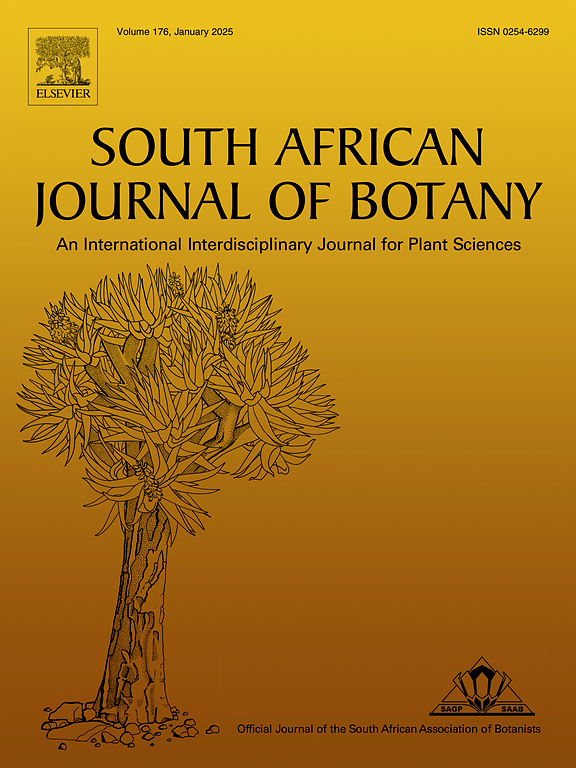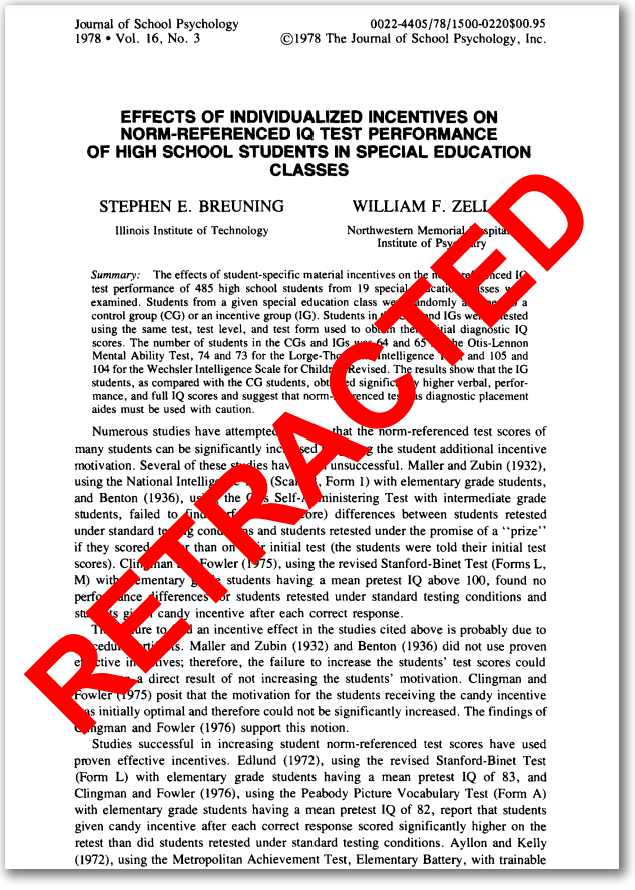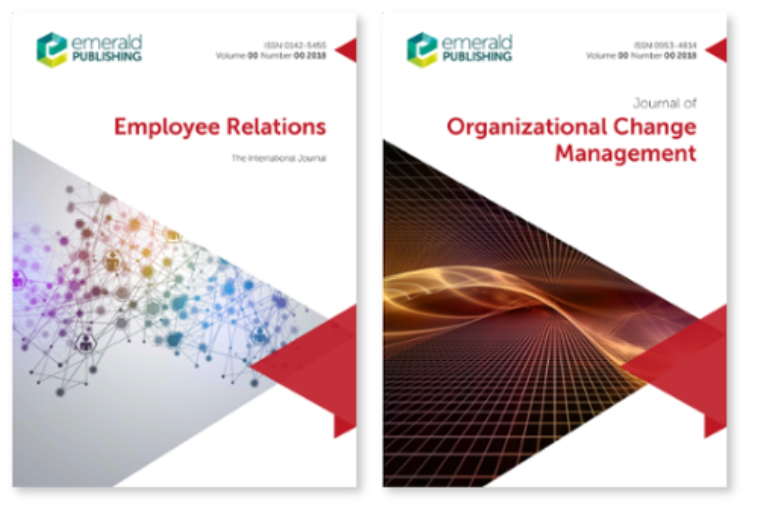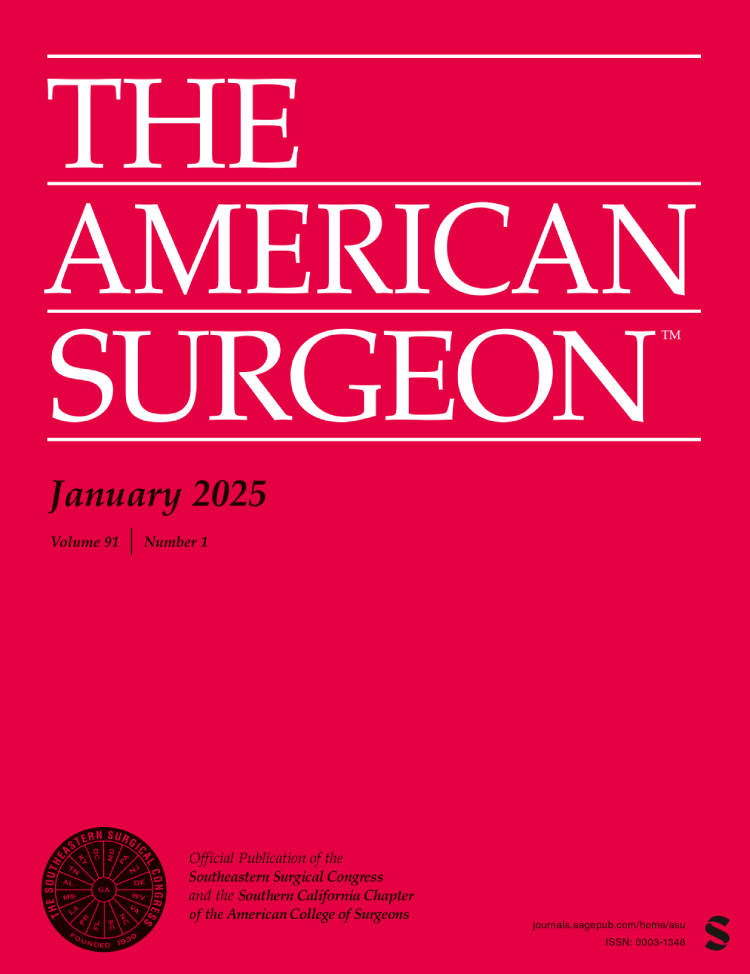A psychology journal has retracted an article on IQ tests nearly 50 years after publication — and more than 35 years after an investigation found the lead author had fabricated data in several other studies.
Stephen Breuning, a former assistant professor of child psychiatry at the University of Pittsburgh, gained notoriety after a 1987 National Institute of Mental Health report found that he “knowingly, willfully, and repeatedly engaged in misleading and deceptive practices in reporting results of research.” The report concluded Breuning had “engaged in serious scientific misconduct” by fabricating results in 10 articles funded by NIMH grants.
Five of Breuning’s articles published in the 1980s have been retracted; three in the 1980s, one in 2022, and another in 2023. Retraction Watch reported on one of them, “Effects of methylphenidate on the fixed-ratio performance of mentally retarded children,” published in 1983 in Pharmacology Biochemistry and Behavior (now published by Elsevier) and retracted in 2022.
The newly retracted article predates those papers. Published in 1978 in the Journal of School Psychology, “Effects of individualized incentives on norm-referenced IQ test performance of high school students in special education classes,” found record albums, sporting event tickets, portable radios, and other incentives boosted scores on IQ tests.
Continue reading More than three decades after misconduct ruling, researcher’s IQ test paper is retracted









